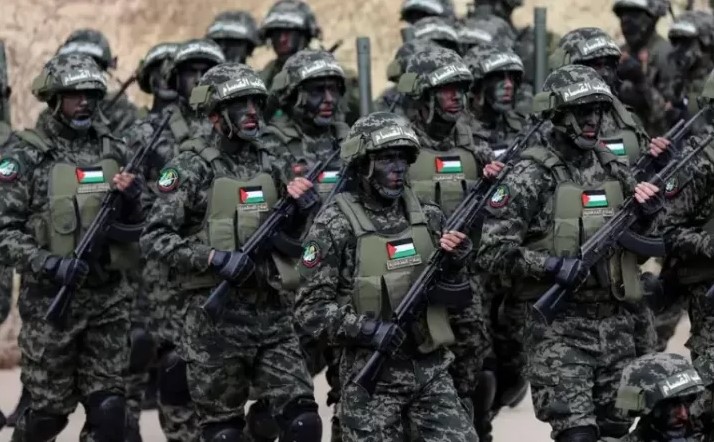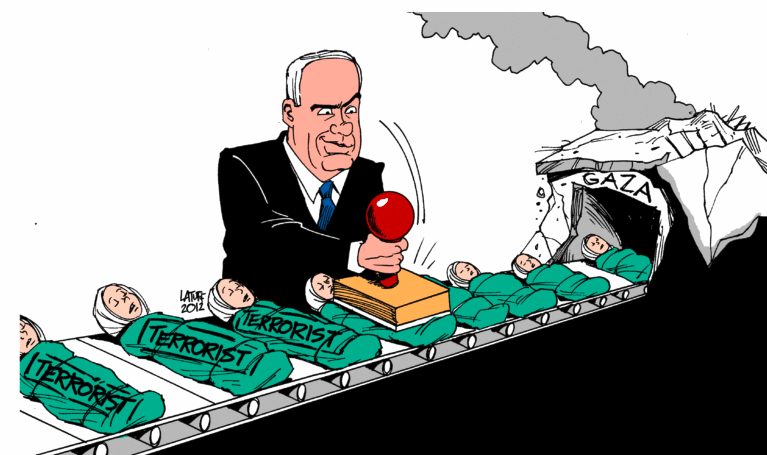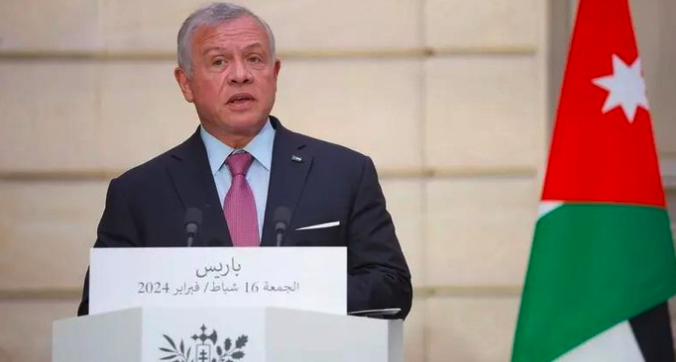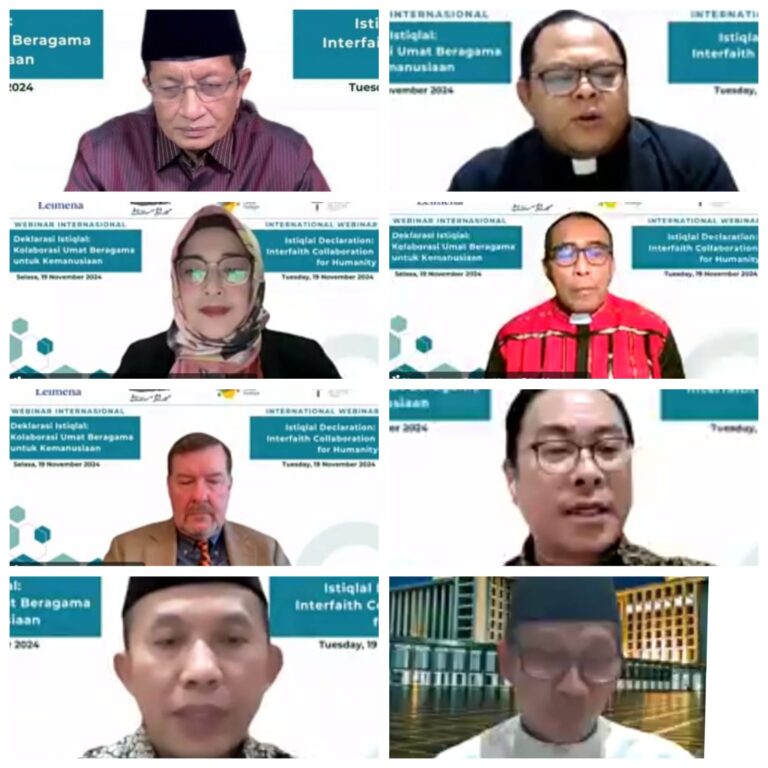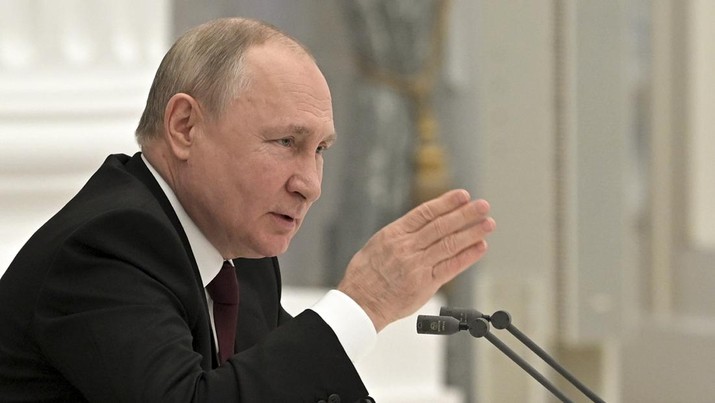
STRATEGIC ASSESSMENT-Russia’s President Vladimir Putin, delivering the keynote address at the June 16th opening session of the St. Petersburg International Economic Conference, after being introduced by the Plenary session moderator Dimitri Simes, said that (and these are highlights from that address):
Our economy and Russian businesses faced the biggest challenges during the second quarter of 2022 when their operating environment was rapidly changing along with the ways they used to trade, transact and arrange their logistics. They essentially had to shift to a new way of doing business and adopt a new operating mode.
Colleagues, ladies and gentlemen, friends, today, we can say in all confidence that the strategy chosen at the time by both the state and Russian businesses proved its worth. Positive macroeconomic trends are gaining momentum and becoming increasingly apparent.
In April 2023, GDP increased 3.3 percent, annualised, and is expected to add over one percent by the end of the year. This is at least what the IMF believes with its forecast of 0.7 percent. I agree with our analysts who argued that the Russian economy would achieve an even higher growth rate of about 1.5 percent, or maybe even 2 percent. This will enable our country to retain its place among the world’s leading economies.
Both manufacturing and retail trade increased in April with output in the processing sectors growing 2.9 percent year-on-year in January-April. Let me remind you that it was manufacturing that suffered the toughest blow due to disruptions in cooperation and value chains.
So, what allowed us to achieve the positive results I have just mentioned? After all, there was a lot of anxiety among business leaders a year ago. In fact, few people could anticipate how events would unfold. In this context, it was essential that we give businesses something they could rely on, build confidence in government policy, emphasise our unwavering commitment to fundamental market mechanisms, the freedom of entrepreneurship and guarantee that private property was protected.
It is for this reason that during last year’s remarks at the forum I set forth the values governing economic development in the new reality and in the long run. I can now say that everything I said last year, and we must understand that what I said was based on our collective efforts, including the Government, the Presidential Executive Office and the Government’s economic bloc, and everything we prepared and then carried out by working together on the ground, it all worked.
First, we kept responsible and balanced fiscal and monetary policies in place. This effective combination made it possible for us to maintain minimal unemployment and inflation, which is lower in Russia than in many Western countries, both in the eurozone and other regions. It is close to the historical low – 2.9 percent. Unemployment stands at 3.3 percent which is the lowest in our history. …
Second, the state has the financial capability to uphold its steadfast commitment to ensuring social justice, reducing poverty and inequality. This focus has been an important factor enabling us to overcome the challenges we had to face last year. …
The third principle I mentioned a year ago here was prioritising private initiative. Last year, there were predictions that sanctions would pressure Russia to revert to a closed, command economy. However, as you know, we opted to give businesses more freedom and the way we applied this principle demonstrated that this was the right decision, as experience has borne out.
Replacing transnational corporations that have left the Russian market was a notable event and a powerful boost for our businesses. Unfortunately, these corporations were unable to resist the sweeping political pressure exerted by international political elites.
You are well aware of the fact that we did not expel anyone from our market or our economy. On the contrary, we suggested that they weigh all the pros and cons and think carefully about their Russian partners and the potential consequences. Each of our partners had a choice.
Importantly, products that are made at our production facilities have long been sold under foreign brands. In fact, these are Russian goods with foreign labels.
So, the departure of trademark owners does not mean that the production will stop. Labels will change, that is all. Revenue from this business will stay in our country. We will work for the new Russian owners, and help them keep their employees, contractors and subcontractors paid in full.
In a word, if at first our entrepreneurs, I would say, were very worried about the departure of Western companies, they are now taking over vacant production facilities and shopping centre spaces. Some small, so-called niche brands that used to sell clothes, footwear or other goods via social media are now opening their own stores.
I mentioned the following at an event in Moscow: in this sector of the economy, the majority of foreign operators left and freed up to 2 million square metres of retail space and a niche of about 2 trillion rubles. Excellent. Almost all of that has been taken over by our entrepreneurs. …
System-wide and consistent policies along these lines have been yielding results. Construction volumes have been growing for five consecutive years, and 2022 was no exception. On the contrary, this trend is gaining momentum and carries on. In 2022, construction was up 5.2 percent, while the same indicator for January-April 2023 reached 7.4 percent.
We will continue our infrastructure construction and upgrades, including roadways and railways, overpasses and bridges. We will also carry on with our effort to remove bottlenecks, since there are quite a few of them out there. Expanding the capacities of our seaports and border checkpoints will also be at the top of our agenda. …
This proves yet again that common sense, business initiative and objective market forces outweigh politics. This also demonstrates that this ugly and de-facto neo-colonial international system no longer works, while the multipolar world order is, on the contrary, becoming stronger. This is an inevitable process.
Overall, exports of goods hit a ten-year high in 2022 at US$592 billion, with non-commodity, non-energy exports accounting for almost a third of this amount at US$188 billion. This figure supports 6.4 million jobs and generated 2.2 trillion rubles in tax revenue paid to the country’s consolidated budget.
I must mention that agricultural exports reached a new high of over US$41 billion, as I mentioned in the beginning.
Overall, we had a US$22.6 billion foreign trade surplus in January-April. I am talking about the first four months, which is a bit longer than the first quarter. The current account surplus for the entire 2022 was US$233 billion. …
I would like to turn my attention to the minimum wage. We have been indexing it above the inflation rate, making sure that the gap separating it from the subsistence rate keeps growing.
Starting January 1, 2023, the minimum wage increased 6.3 percent to 16,242 rubles per month. We will increase it again effective January 1, 2024, with an 18.5 percent adjustment in a single go. This means that after a 6.3 percent increase effective January 1, 2023, the minimum wage will increase 18.5 percent from January 1, 2024, which is way above the inflation rate and the rate at which salaries are growing across the country. …
At the end of Putin’s speech, Mr. Simes asked about the war in Ukraine. Putin responded:
I recently met with our war correspondents. When asked a similar question, I said that the war in Ukraine, in its southeastern parts, was started by the Kiev regime with the support of its Western sponsors in 2014. People try to avoid this subject in the West. But I have to say that aviation, tanks and artillery were used in the northwest against Donbass.
What was that if not a war? It is a war. And it has been going almost for nine years now. Then our so-called partners, our counter-partners, publicly refused to settle the conflict peacefully. This forced us to use our Armed Forces in an attempt to put an end to this conflict.
If someone is trying to pass the buck, these are attempts to do so by unfair means. We here know how it really started.
We were not the ones who tried to dupe our partners. As it turned out, signing the Minsk agreements, they never meant to implement them, and they have since gone public about this, virtually making a confession. Both the Ukrainians and the Europeans have said so publicly. So we were forced to use our Armed Forces, to recognise the independence of the Donetsk and Lugansk people’s republics, to allow them to accede to Russia at their request, and then to provide military support to them in an attempt to end this armed conflict. This is the first thing I want to say.
Second, of course we see that the Western countries are going all-out on Russia to sustain what they call a defeat on the battlefield. Indicatively, they are talking about a strategic defeat and are doing all they can to inflict it. We are fully aware of this, but we have set definite goals on the denazification and demilitarisation of these territories.
As for demilitarization… Look, soon Ukraine will have to stop using its own hardware. There will be nothing left. Everything they are fighting with and everything they are using is being brought in from the outside.
But it is impossible to fight like that indefinitely. Meanwhile, our defence industry is gaining momentum every day. We have increased military production by 2.7 times during the last year. Our production of the most critical weapons has gone up ten times and keeps increasing. Plants are working in two or three shifts, and some are busy around the clock. This proves to us that our safety margin is very big.
What is happening with this so-called counteroffensive? Not quite as planned – in some places, Ukrainian units are reaching the first line whereas in others, they are not, but this is not the main point. The problem is that they are using so-called strategic reserves that consist of several components. The first one is designed for breaking defences; the second one, for using troops to hold territories and move on these territories. What is really important is that they have not reached their goals in any section.
Indeed, they have sustained very heavy losses – even more than one to ten compared to the Russian army. This is a fact. As for hardware, every day they are losing more and more hardware. As of today, the Ukrainian army has lost about 186 tanks and 418 armoured vehicles of different types. I am not talking about personnel – this is for the Defence Ministry to announce. But, let me repeat that there are no successes in any of the directions. The enemy has gained no success, as the military report.
You know very well that perhaps no other statement of yours about Ukraine irritates the collective West more than the statement that Nazism plays a large role in Ukrainian politics and that denazification is required.
In response, you are told: “What are you talking about? [President of Ukraine Vladimir] Zelensky is Jewish. He is a legitimately elected president, and it is clear that he stands for everything good (Western) against everything bad (Russian). So it is not for you to say that he sides with the Nazis.” How do you respond to this?
Vladimir Putin: I have had many Jewish friends since childhood. They say: Zelensky is not a Jew but a disgrace to the Jewish people.
This is not a joke or irony. Do you understand? After all, neo-Nazis, followers of Hitler, have been raised on pedestals as today’s heroes in Ukraine. The Holocaust means killing 6 million Jews, one and a half million of which were killed in Ukraine, and primarily at the hands of Bandera followers.
I had no doubt that you would ask such a question and last night, when I was going to bed, I called Moscow and asked them to compile some materials. I called them when I was here already. Look, Yaroslav Stetsko, head of the Organisation of Ukrainian Nationalists, Bandera’s faction, 1939: “Moscow and Judaism are Ukraine’s greatest enemies. I insist on the extermination the Jews and the need to adapt German methods to dealing with Jewry in Ukraine.”
Another activist. July 10, 1941, the Lvov pogroms, when German units entered Lvov. A certain Stepan Lenkavsky writes, “Regarding the Jews, we accept all methods that will lead to their complete extermination.” What is this?
You know, I read the testimony of a freak from among Bandera followers after the war, where he wrote about how he and other people like him led a Jewish family to be shot. It is impossible to read this without getting a lump in your throat. The head of the family was a disabled man, missing an arm, his wife and two children, 11 and 7 years old, I think, both girls. They took them to be shot. That disabled man knew what was going to happen, everyone understood that they were being led to an execution, so he hugged the dog with his one arm and started to cry. They took him away and shot him. And his children, girls, aged 7 and 11, too.
One and a half million Jews were killed, without counting the Russians and the Poles, who, by the way, have not forgotten, at the everyday level, about what happened in Ukraine because of the Bandera followers. Well, the Poles have their own goals; they dream of retaking Western Ukraine. And, apparently, they are gradually moving towards this goal. But we are talking about the Holocaust. How can you deny it?
I offer my apologies to the President of Algeria, our guest. I knew you would ask me that. To reiterate, as I was going to bed yesterday, I asked to not only send this piece of paper, but also to send something more tangible. We keep saying the same thing over and over again. Bandera was an anti-Semite and a neo-Nazi. But no one appears to want to hear that because Zelensky has Jewish blood. But he is covering for these freaks, these neo-Nazis, with his actions. …
This is Bandera and his minions. These are the people who today are the heroes of Ukraine, whom the current Ukrainian government is defending, both as individuals and their ideology. How can you not fight this? We must fight this. Russia was the country hardest hit by the war against Nazism. We will never forget this.
Just like ordinary people in Israel, by the way. Check what they are saying on the internet in plain, clear Russian. Take a look and you will understand everything.
How can you not fight it? If this is not the current edition of neo-Nazism, then what is it?
SImes asked Putin,“Do you consider NATO to be a participant in the war in Ukraine? And if NATO is a participant in the war in Ukraine, then it is hard to imagine there is any room for constructive diplomacy. Or am I wrong?”
Putin replied: Of course, NATO is becoming involved in the war in Ukraine. What are we talking about? There are deliveries of military hardware, heavy equipment. Now they are considering supplies of aircraft as well. I have already mentioned today that we are seeing attempts to mount attacks by two companies with the support of five tanks in one area. One and a half company supported by two tanks makes attempts in another area. The tanks are burning; several tanks have been destroyed, including the Leopards. Several tanks, including the Leopards, burned yesterday too. They are burning. The F-16s will be burning too, no doubt about it.
But if they are located at air bases outside Ukraine and are used in hostilities, we will have to think about how and where we can hit the resources that are used against us in the hostilities. There is a serious danger of NATO’s further involvement in this armed conflict.
As for the Western leaders, you know, I never state any assessments with regard to my colleagues. No matter whether our personal relationships work out or not, I believe this is not acceptable.
And by the way I never say anything about Mr Zelensky, either. The only thing that I cannot accept at all – how can one support the neo-Nazi scum and elevate them to the status of national heroes regardless of a particular person’s ethnicity? This is the point, the most important thing. …


